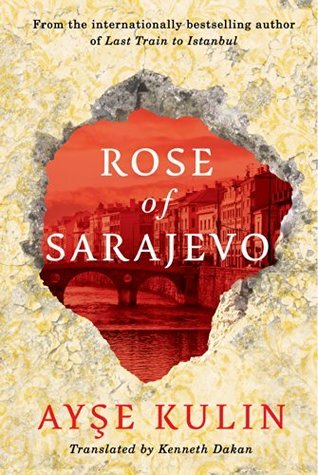More on this book
Community
Kindle Notes & Highlights
Istanbul was the city of flight. A place of last resort. It was to Istanbul that those who had lost all hope were swept on a flood of tears.
In 1878, the Ottomans relinquished their rule of Bosnia, and with their departure the Bosniaks suffered their most heartbreaking separations. The administration of Bosnia and Herzegovina was transferred from the Ottomans to the Austro-Hungarian Empire. The Ottomans had resigned themselves to the inevitable. Their great empire was fragmenting piece by piece, another chunk of territory wrenched
from its bosom at every turn. Without the firing of a single bullet, without a single skirmish, without the shedding of a single drop of martyr’s blood, the province of Bosnia was surrendered to the unbelievers through a few signatures at a conference table. The Ottoman Empire was dissolving.
In pursuit of the dream of a Greater Serbia, a paramilitary Chetnik organization slaughtered Bosniaks in 1942. A year later, they had killed nine thousand elderly Muslims and children.
By the time Sarajevo was liberated in April 1945, seventy-five thousand Muslims had died in the Balkans, a figure greater than that of either the Croatian or Serb casualties.
The time had finally come for the Serbs to avenge Tito, an ethnic Croatian, for all the years he had suppressed Serbian nationalism. In particular, the Serbs were determined to regain control over Kosovo, which, in light of its Albanian majority, had been granted autonomy by Tito after World War II.
Gazimestan
Mark this day, the 28th of June 1989, as the day Milošević ignited Serbian nationalism in a speech marking the six hundredth anniversary of the defeat of the Serbian kingdom to the Ottoman Empire at the Battle of Kosovo.”
There were also three different takes on Yugoslavia in those days: that of the army, which insisted on remaining a single nation; that of Milošević, who was determined that the Serbs living in other republics have their territories annexed to Serbia; and that of Slovenia and Croatia, who would settle
for nothing less than full independence. And then there was Bosnia, which didn’t know what it wanted but was prepared to do whatever it took to prevent a civil war. Milošević, who very much knew his own mind, had just given Croatia a ten-day deadline to surrender all its weapons to the YNA.
Serbs were being continuously incited to hate first the Albanians of Kosovo, then the Slovenians, and finally the Croatians.
Nobody with a lick of sense favors war. I know; I’ve been through it. It’s not the fear of death, the hunger, and the deprivation that scares me, it’s what people are capable of doing to each other when they’re at war.
These people had been living together for five hundred years. By the end of the Tito era, this intermingling had become such a part of daily life that it was as though all ethnic and religious differences had been erased.
“For all their talk of human rights, Europeans have no mercy for anyone but their own.”
This time he was the one who reached out his hand. The two men clasped hands for a moment. They were from the same race, and maybe even the same bloodline. They were roughly the same height and about the same age. They loved the same woman. Their ancestors had chosen different paths by which to get closer to
God, and for that reason one of them was a Bosniak, the other a Croat. It hadn’t been their own choice, any more than they’d chosen this war or their fate. They had one more thing in common: neither had any expectations for tomorrow. Tomorrow would be filled with bullets, bombs, and blood. Still, whether they realized it or not, each man hoped for a “brighter tomorrow.” For all the pain, sorrow, and violence inflicted
on this magnificent world by people of different faiths for whatever misguided reason, hope sp...
This highlight has been truncated due to consecutive passage length restrictions.


